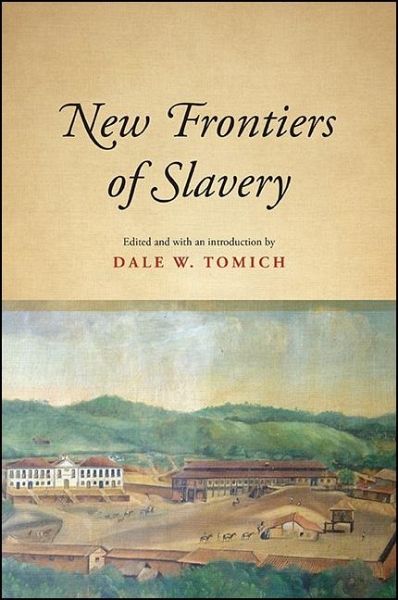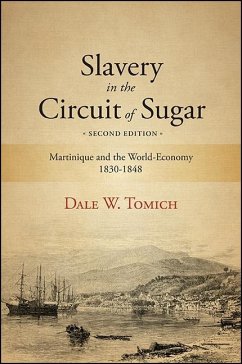
New Frontiers of Slavery (eBook, ePUB)
Versandkostenfrei!
Sofort per Download lieferbar
0,00 €
inkl. MwSt.
Weitere Ausgaben:

PAYBACK Punkte
0 °P sammeln!
Essays challenging conventional understandings of the slave economy of the nineteenth century.The essays presented in New Frontiers of Slavery represent new analytical and interpretive approaches to the crisis of Atlantic slavery during the nineteenth century. By treating slavery within the framework of the modern world economy, they call attention to new zones of slave production that were formed as part of processes of global economic and political restructuring. Chapters by a group of international historians, economists, and sociologists examine both the global dynamics of the new slavery,...
Essays challenging conventional understandings of the slave economy of the nineteenth century.
The essays presented in New Frontiers of Slavery represent new analytical and interpretive approaches to the crisis of Atlantic slavery during the nineteenth century. By treating slavery within the framework of the modern world economy, they call attention to new zones of slave production that were formed as part of processes of global economic and political restructuring. Chapters by a group of international historians, economists, and sociologists examine both the global dynamics of the new slavery, and various aspects of economy-society and master-slave relations in the new zones. They emphasize the ways in which certain slave regimes, particularly in Cuba and Brazil, were formed as specific local responses to global processes, industrialization, urbanization, market integration, the formation of national states, and the emergence of liberal ideologies and institutions. These essays thus challenge conventional understandings of slavery, which often regard it as incompatible with modernity.
This book is freely available in an open access edition thanks to Knowledge Unlatched - an initiative that provides libraries and institutions with a centralized platform to support OA collections and from leading publishing houses and OA initiatives. Learn more at the Knowledge Unlatched website at: https://www.knowledgeunlatched.org/, and access the book online at the SUNY Open Access Repository at https://soar.suny.edu/handle/20.500.12648/1707.
The essays presented in New Frontiers of Slavery represent new analytical and interpretive approaches to the crisis of Atlantic slavery during the nineteenth century. By treating slavery within the framework of the modern world economy, they call attention to new zones of slave production that were formed as part of processes of global economic and political restructuring. Chapters by a group of international historians, economists, and sociologists examine both the global dynamics of the new slavery, and various aspects of economy-society and master-slave relations in the new zones. They emphasize the ways in which certain slave regimes, particularly in Cuba and Brazil, were formed as specific local responses to global processes, industrialization, urbanization, market integration, the formation of national states, and the emergence of liberal ideologies and institutions. These essays thus challenge conventional understandings of slavery, which often regard it as incompatible with modernity.
This book is freely available in an open access edition thanks to Knowledge Unlatched - an initiative that provides libraries and institutions with a centralized platform to support OA collections and from leading publishing houses and OA initiatives. Learn more at the Knowledge Unlatched website at: https://www.knowledgeunlatched.org/, and access the book online at the SUNY Open Access Repository at https://soar.suny.edu/handle/20.500.12648/1707.
Dieser Download kann aus rechtlichen Gründen nur mit Rechnungsadresse in A, D ausgeliefert werden.













